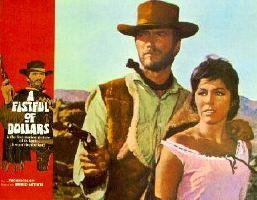A prayer for the Gulf Coast
 In meditating upon the damage and suffering left in the wake of Katrina, a number of Scriptures came to mind, followed by a prayer uttered in their light...
In meditating upon the damage and suffering left in the wake of Katrina, a number of Scriptures came to mind, followed by a prayer uttered in their light..."The earth was a formless void
and darkness covered the face of the deep,
"...and he sent a wind over the earth, and the waters receded."
"...and all that night the LORD drove the sea back with strong east wind and turned it into dry land. The waters were divided and the Israelites went through the sea on dry ground, with a wall of water on their right and on their left."
"...and there before me were the four winds of heaven churning up the great sea. Four great beast... came up out of the sea.... and there before me was one like a son of man coming with the clouds of heaven."
"And I saw a beast coming out of the sea...
And I saw... standing beside the sea, those who had been victorious over the beast and his image and over the number of his name. They held harps given them by God and sang the song of Moses the servant of God and the song of the Lamb: "Great and marvelous are your deeds, Lord God Almighty. Just and true are your ways, King of the ages."
A Prayer for the Gulf Coast
Oh God of creation,
 Frayling made a fascinating comment in the few minutes I listened to the interview Noting the optimistic, "white-hat" persona of the cowboy in American westerns, he pointed to director Sergio Leone's grittier, more pessimistic, "gray-hat" portrayal of cowboys. Thus, asked by a boy why he's helping them, Clint Eastwood's character in Leone's A Fistful of Dollars does not give a John Wayne, "a man's-gotta-do-whatta man's gotta do" response. "What are you doing this for?" the boy asks. "Five hundred dollars," comes the hero's response. It wasn't about doing the right thing. It was just about the money. Beginning with Leone's A Fistful of Dollars, Frayling suggests, it wasn't what you believed in that mattered; it was your style.
Frayling made a fascinating comment in the few minutes I listened to the interview Noting the optimistic, "white-hat" persona of the cowboy in American westerns, he pointed to director Sergio Leone's grittier, more pessimistic, "gray-hat" portrayal of cowboys. Thus, asked by a boy why he's helping them, Clint Eastwood's character in Leone's A Fistful of Dollars does not give a John Wayne, "a man's-gotta-do-whatta man's gotta do" response. "What are you doing this for?" the boy asks. "Five hundred dollars," comes the hero's response. It wasn't about doing the right thing. It was just about the money. Beginning with Leone's A Fistful of Dollars, Frayling suggests, it wasn't what you believed in that mattered; it was your style.

